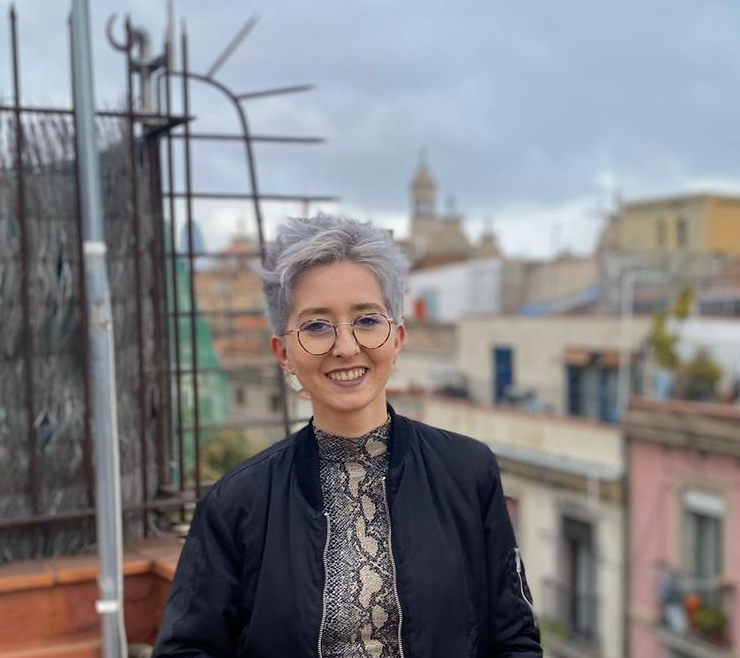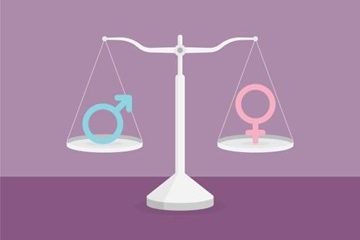THIS POST WAS ALSO WRITTEN IN SPANISH. THE SPANISH VERSION IS FOUND BELOW.
When I was little, my grandmother used to tell me and my sisters, “Do research;be researchers to find out the cure to diseases”. Personally, I never understood this. It seemed too difficult and broad of a sentiment that I never thought I could make it happen. She, as with many other women from her generation, did not have access to a higher education as she had brothers for whom the resources were reserved. This inequity shaped so much on her life and drove her to encourage her granddaughters to pursue Bachelor’s degrees,preferably in Science, but if not, something that could help other humans. Today, I wish I could tell her that I am fulfilling her dream, both for her and for all the other women that still do not decide their own future, do not have access to a proper education or health system or simply, those that they have acquired their roles from civil society norms and, finally, those that have selected other less certain pathways.
Today, I am thinking of my University teachers; the teachers who passionately taught me why dedicating ourselves to science is one of the most beautiful things we can do, and why, even though it is a tough path, the rewards are great. In particular, I remember the teacher who changed my destiny, Consuelo Jiménenez, in a Parasitogy lecture. She explained to us the importance in conducting research of neglected tropical diseases to improve the quality of life of vulnerable populations. That moment encouraged me to pursue a career in research. It is no secret, as all of us have realized over the course of our Bachelor’s degrees, while the vast majority of students are women but the majority of professors/deans/principal investigators are men. This underrepresentation in our very own environment, in “developed” countries, highlights the need to celebrate Women’s Day (8th March) and the International Day of the Women and Girls in Science (11th February). In Spain, according to data from the Educations Ministry, approximately 70.4% of the new students in Health Science degrees are women, however the percentage of female professors and senior lecturers remains less than 40% 15% respectively (www.mec.es, 2004). Unfortunately, this is only one of the many examples where we can see discrimination and equalities in our society. As a result, we all have to support ourselves in order to not only have a stronger presence in the research field, but to break the very “glass ceiling” that separates us from the top employment opportunities. Despite it still being difficult to reconcile our families and professional lives, we know that the life of an investigator is quite tough, requires sacrifices, exhausting and neither highly paid nor socially rewarded and reasons could explain why many women decide to abandoned the field. However, with a better understanding of the reasons, we can and need to mobilize ourselves. We do need to engage in demonstrations to reduce the wage gap and the different employment opportunities between genders in order to achieve real equality in research and other aspects in life. Today is the day to call for an improvement in research conditions, stable and high-quality employment options and decent wages. Today is the day to show that we are not lacking motivation and that do have the potential to create knowledge and expand on it. We just need governments and institutions to equip us with the tools and opportunities to make it in a fair and sustainable way. To achieve this, we need to recognize that we are not alone; we are women and researchers. For all of us, have a happy day!
Mujeres científicas, ¡hagámonos oír!
Recuerdo que cuando era pequeña, mi abuela nos decía a mi y a mis hermanas “Investigad, sed investigadoras para descubrir la cura de enfermedades”. Yo, nunca lo entendí. Me parecía algo tan complicado y general “¿Investigar el qué?”, que nunca pensé que fuera a hacerlo realidad. Ella, como muchas otras mujeres de su época, no pudo tener acceso a unos estudios superiores, porque tenía hermanos varones para los que tenían que guardar los recursos para su formación. Esta inequidad le marcó toda su vida, y es por ello que siempre fomentó que todas sus nietas estudiaramos una carrera (y a poder ser, científica, o con el fin de ayudar a los demás). Hoy, me gustaría decirle que estoy cumpliendo su sueño por ella y por todas aquellas mujeres que aún todavía no pueden decidir sobre su propio futuro, que no tienen acceso a una educación ni sanidad de calidad, o que simplemente, han adquirido los roles de la sociedad donde han crecido y han optado por tomar otros camino sin estar convencidas de ello.
Hoy, me acuerdo también de mis profesores y profesoras de la Universidad, los cuales me enseñaron con pasión por qué dedicarnos a la ciencia es una de las cosas más bonitas que podemos hacer y que pese a ser un camino difícil, al final, lleva a una grata recompensa. En especial, recuerdo a la profesora que marcó mi destino, Consuelo Jiménez, enseñándome en la asignatura de Parasitología la importancia de investigar enfermedades olvidadas para mejorar la calidad de vida y salud de poblaciones vulnerables. Este fue el momento que me impulsó para querer seguir el camino de la investigación. Y es que, durante los años de carrera, creo que es algo que nos sorprende a todas las personas… ¿Por qué la mayoría de alumnos somos mujeres pero la mayoría de profesores/decanos/investigadores principales son hombres? Esta infrarrepresentación en nuestro entorno, países “desarrollados”, nos hace continuar necesitando esta discriminación positiva, que es celebrar el Día de la Mujer (8 de Marzo) y el Día de la Mujer y la niña en la Ciencia (11 Febrero).
En España, según datos del Ministerio de Educación un 70.4% de los nuevos estudiantes en carreras de Ciencias de la Salud son mujeres; sin embargo, el porcentaje de profesoras de universidad no llega al 40% y catedráticas universitarias representan menos del 15% (www.mec.es, 2004). Desgraciadamente, este es solo uno de los muchos ejemplos en los que se puede observar la discriminación e inequidad aún en nuestra sociedad. Es por ello, que tenemos que apoyarnos entre tod@s para tener no solo una mayor presencia durante la carrera investigadora, sino para conseguir romper el techo de cristal que nos separa de los puestos más altos. Hoy en día, aún es difícil conciliar la vida familiar y profesional y si además de ello, sabemos que la vida de investigador(a) es bastante dura, sacrificada, agotadora, no excesivamente remunerada ni recompensada; puede explicarse por qué muchas mujeres deciden abandonarla. Pero después de comprender los motivos, tenemos que movilizarnos. Tenemos que manifestarnos para disminuir la brecha salarial, las diferentes oportunidades laborales entre géneros y conseguir una equidad real en este y en todos los ámbitos de la vida. También, hoy es el día para reivindicar una mejora de las condiciones en la investigación, unos puestos de trabajo estables y unos salarios decentes. Porque está claro que motivación no nos falta. Tenemos el potencial para poder co-construir conocimiento y expandirlo, sólo necesitamos una pequeña ayuda por parte de gobiernos e instituciones, que nos faciliten las herramientas que nos permitan hacerlo de una manera justa y sostenida en el tiempo. Porque no estamos solas, porque somos mujeres e investigadoras. Por todas nosotras, ¡Feliz día!




0 Comments